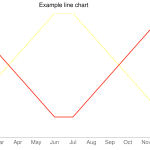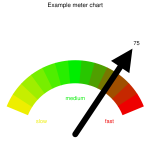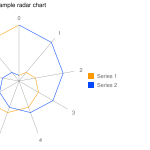No to the Alternative Vote
 On Thursday 5th May there is a referendum on whether or not the United Kingdom should adopt the instant-runoff (“Alternative Vote”) voting system in place of the “First Past The Post” (FPTP) system that’s currently in use. There are rigorous campaigns for and against this, both from various political parties and from other campaign groups.
On Thursday 5th May there is a referendum on whether or not the United Kingdom should adopt the instant-runoff (“Alternative Vote”) voting system in place of the “First Past The Post” (FPTP) system that’s currently in use. There are rigorous campaigns for and against this, both from various political parties and from other campaign groups.
Having carefully considered each argument I’ve come to a decision on how to vote on 5th May and I wil be voting “No”. Here are the reasons why I have reached this decision. You may wish to note that none of these reasons are political. I don’t care about any of the party positions. I will admit that the party that I’m a card-carrying member of has a consolidated “no” position, but this had no bearing on my decision.
- The instant-runoff system, whereby you “score” the entire list of candidates in order of preference, is the same system that Nominet and the British Computer Society use for various internal elections, so I am familiar with using it already. Here’s the blunt truth about using it in practise: After I’ve marked my second preference, I really don’t give a monkeys about the remaining six candidates and so I assign their numbers arbitrarily, almost randomly. I expect many people will do the same if this system is adopted for parliamentary elections. Such “votes” that make up the numbers in this way are at best a waste of time and at worst could give a candidate or party more representation than people actually wanted.
- It makes what is currently a very simple voting system (marking a sheet of paper with a cross, even illiterates can do it as long as they have someone to tell them which candidate is which) with one that is much more complex and arguably inaccessible to a small handful. This will have a detrimental effect on voter turnout if people believe that the system is more complicated and therefore prone to error. Low voter turnout is one of the most crucial problems with elections these days and anything that threatens it further is unacceptable. I’ve always maintained that voting in parliamentary elections should be mandatory, like it is in Australia. At no point should it ever be possible to apportion the result of an election to any level of voter turnout.
- It has the potential to allow more extreme political parties to gain disproportionately more representation than they would otherwise gain. I’m actually very surprised that pro-AV groups, who are typically on the left of politics, are advocating a system that could give parties like the British National Party more power and influence.
- Lastly, given this country’s track record with IT projects, I have little to no confidence that the costly and complex vote counting system that will be required will be up to the job. Arguably a minor concern when compared to the others, but still valid.
I’m not saying for a minute that the existing FPTP system is by any means perfect, because it’s far from it. Indeed, I’ve often bemoaned its shortcomings following various general elections after watching in dismay as carefully planned constituency boundaries deliver election victories which they ought not to have and wouldn’t have under a “fairer” system. I just don’t think that AV is the answer to this.
So there it is, I have imparted my decision and the reasons for it. If you’re undecided at this stage I hope that the points I’ve raised help you to decide appropriately.










































